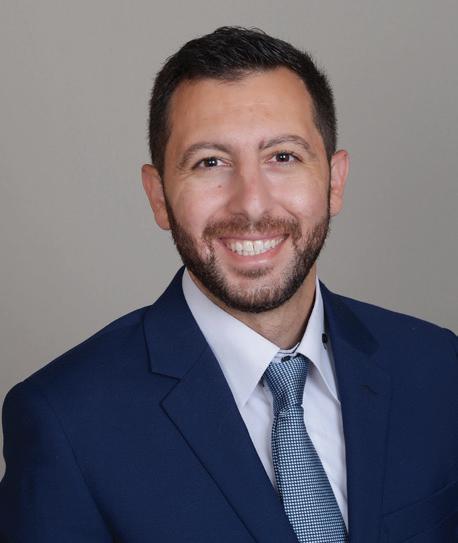
2 minute read
VICTOR CHIQUETE
University of Arizona vachiquete@arizona.edu
I am a Neuroscience major with an emphasis on Neurobiology and a minor in biochemistry. My initial interest in the brain came when I was 7 years old and was treated for a tic disorder. We did not have specialty care in the small border town where I grew up but through these challenges, I developed a desire to help others. After high school I wanted to follow this purpose by joining the military and after being cleared by my Neurologist I enlisted in the Navy as a Hospital Corpsman. During this time I fell in love with medicine and decided that I wanted to pursue it as a career. I plan to apply to medical school and specialize in Neurology in the hopes of contributing to movement disorder research. In my free time I love to destress by playing golf and spending time outdoors.
Advertisement
⊲ PROJECT
Habitual Dietary Quality Associated with Habitual Sleep Duration, Insomnia, Daytime Sleepiness, and Fatigue in a Community Sample
Previous studies have shown a relation between sleep duration/quality and dietary intakes, but relatively few have examined characteristics of habitual diet associated with sleep, using validated measures. The present study examined relationships between overall diet quality and a range of sleep-related factors.
Michael Grandner
PhD, MTR, CBSM, FAASM Associate Professor, Medicine Grandner@arizona.edu
Michael Grandner is a licensed clinical psychologist, Director of the Sleep and Heath Research Program at the University of Arizona, and Director of the Behavioral Sleep Medicine Clinic at the Banner-University Medical Center in Tucson, AZ. His work focuses on translational sleep research and Behavioral Sleep Medicine, including studies of sleep as a domain of health behavior and the development and implementation of behavioral interventions for insufficient sleep and sleep disorders. Specific areas of focus include:
(1) Downstream cardiovascular, metabolic, and behavioral health outcomes associated with habitual sleep duration and/or insufficient sleep, (2) Upstream social, behavioral, and biological determinants of habitual sleep duration, insufficient sleep, and poor sleep quality, and
(3) Development and implementation of behavioral interventions for sleep as a domain of health behavior.
Ylia Chuffe
University of Arizona, BA Ychuffe@arizona.edu
Ylia Chuffe, is a recent graduate of the University of Arizona who received his B.A in Biochemistry with Minors in Spanish and Music. He was born in Tucson, Arizona and is happy to call the valley home. He is an active violinist in the music community around Tucson, performing with the Arizona Symphony Orchestra, Tucson Symphony Orchestra, and Mariachi Pueblo Viejo throughout college. Ylia volunteers at Clinica Amistad as a prior participant of FACES Conversantes, where he enjoys assisting providers and patients through Spanish-English interpretation. As a medical scribe at BUMC-T, he had the opportunity to gain exposure and a deep appreciation for medicine and its many specialties. He plans to obtain his Master’s in Healthcare Management before applying to medical school. In his free time, he enjoys weight lifting, running, practicing instruments, and working on his project car.
⊲ PROJECT
This research aims to conduct a comprehensive evaluation of the efficacy of blue light therapy specifically in the context of complex burn and trauma patients, who are particularly susceptible to Pseudomonas aeruginosa infections. Retrospective photographs of wounds were captured at both inpatient and outpatient clinics to document and assess the progress of patients’ treatment. These photographs served as visual records, allowing for a comprehensive evaluation of the patients’ condition over time. With this approach, we aim to visually compare and analyze the results, and ultimately contribute to the growing body of knowledge regarding blue light therapy.





